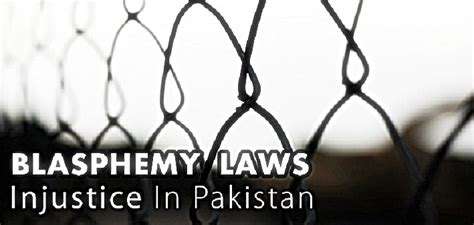On Tuesday, the Islamabad High Court (IHC) directed the federal government to form a commission within 30 days to investigate the alleged misuse of the blasphemy law. This decision came during a hearing of a case that called for the creation of a commission to examine the controversial application of the law, with the court emphasizing the need for transparency and accountability.
Court’s Directive and Timeline
Justice Sardar Ejaz Ishaq Khan, who was overseeing the case, ordered that the commission’s investigation be completed within four months. However, the court allowed for the possibility of an extension, should the commission require additional time to conclude its work. The commission’s findings must be submitted within the specified timeline, and any request for an extension would need prior approval from the court.
The ruling was made after Justice Khan expressed satisfaction with the arguments presented by the petitioners, stating that the court’s primary task was to determine whether sufficient grounds existed to warrant the formation of a commission. Upon reaching this conclusion, the judge instructed the government to establish the commission within 30 days.
Concern Over Disappearance of Central Figure in Blasphemy Cases
The court also addressed the disappearance of a key figure in several blasphemy-related cases. Komal Ismail, who had been identified as “Iman,” was reportedly involved in luring individuals into false blasphemy accusations. Earlier in the month, the IHC had ordered her CNIC (Computerized National Identity Card) to be blocked due to her failure to appear in court.
During Tuesday’s proceedings, an official from the National Cyber Crimes Investigation Agency (NCCIA) reported that four SIM cards had been registered under Ismail’s identity. However, all of these numbers had become inactive after November. Despite efforts to locate her, it was confirmed that Komal Ismail had not left the country and was still believed to be in Pakistan. As a precautionary measure, her name has been placed on the Exit Control List (ECL), and the authorities are continuing their efforts to trace her.
Justice Sardar Ejaz Ishaq Khan expressed concern over Ismail’s disappearance, noting that her safety was at risk. He questioned what actions could be taken by the authorities in such circumstances, emphasizing the gravity of the situation.
Telecommunications Data and Investigation Progress
The court also reviewed the progress of the investigation into the blasphemy cases. Advocate Hadi Ali Chatha informed the court that earlier, it had requested WhatsApp data from three mobile numbers linked to the case. However, telecom companies responded that WhatsApp data was not covered under Call Detail Records (CDRs), and only standard CDRs were available for the past year.
In response, Justice Ishaq Khan suggested that if an intelligence agency possessed the capability to retrieve such data, the commission should be authorized to seek assistance from these agencies, emphasizing that this was a matter of life and death for those involved.
Furthermore, the judge scrutinized the quality of the ongoing investigation. One of the accused, Naik Muhammad, had claimed that he had been falsely implicated by a woman named “Iman.” Justice Ishaq questioned the depth of the investigation, noting that only five images had been retrieved from Naik Muhammad’s phone and that officials had failed to establish whether “Iman” had ever contacted the accused.
Allegations of False Claims and Incomplete Investigation
In a related development, Advocate Chatha revealed that the complainant in the case, Shiraz Farooqi, had been in contact with Naik Muhammad just a week before filing the complaint. When questioned by the court, Farooqi denied the claim, calling it “a complete lie.” This contradiction further raised concerns about the integrity of the investigation, with the court questioning the reliability of the evidence presented.
Implications for the Blasphemy Law
The IHC’s decision to form a commission to investigate the misuse of the blasphemy law is seen as a significant step toward addressing the growing concerns over the law’s abuse in Pakistan. The blasphemy law has long been a subject of controversy, with numerous allegations of it being misused for personal vendettas or to target marginalized groups. The formation of a commission to investigate these claims aims to ensure that the law is applied justly and that no individual is wrongfully accused or punished.
As the government works to establish the commission, its findings and recommendations will be crucial in shaping the future of the blasphemy law and its application in Pakistan. The court’s emphasis on transparency, thorough investigations, and protection of personal safety highlights the ongoing efforts to reform the legal process and ensure fairness for all citizens.
